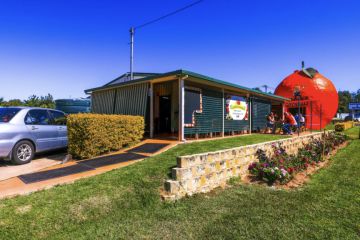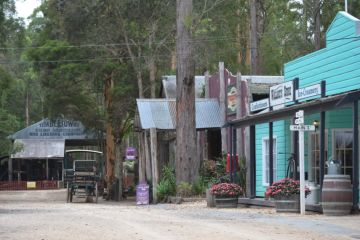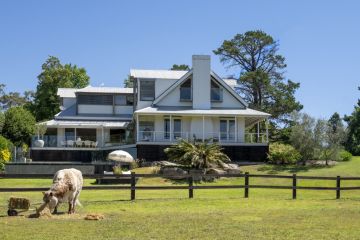What type of property investor are you?

Invest in a rental property or to sell on?
Are you thinking long term with the aim of leasing your investment property? Or are you interested in short-term gain after an initial capital investment?
Landlord
The majority of real estate investors view property as a longer-term commitment in order to gain the benefits of capital growth (the value of your property increasing over time), rental income and tax offsets. Whether self-managed or with the help of a property manager this means becoming a landlord.
Senior economist for the Domain Group, Dr Andrew Wilson, encourages a medium- to long-term outlook. “I think property investment provides robust and resilient results generally over the medium to longer term. That’s why banks are so amenable to lending up to 80 percent of the value of a property, because they regard that particular asset class as being worthy of borrowing against.”
Renovator
The alternative approach is sometimes referred to as ‘flipping’. This is where an investor purchases a property with the intention of renovating and selling it for a profit in the short term. For this process to be a success, many factors need to be considered, including:
- Finding a property that has been undervalued and will benefit from strategic improvements
- Accurately estimating the potential profit margin on the sale of the property and sticking to a strict renovation budget to avoid overcapitalising
- Realistically factoring in the buy–renovation–sale timeline and subsequent financial and cash-flow commitments
- Possessing renovating, building or trades expertise to cut down on labour costs
- Having the time to undertake or manage the renovation process.
“I don’t know whether the days of making a quicker return or a good return by being a professional renovator are here,” says Dr Wilson. “I think the turnover that occurs with capital growth happens through the [real estate] cycles. Of course, if you improve a property in a market that’s regenerating, that’s gentrifying, you can gain some reasonable returns. I do still think it’s a medium- to longer-term proposition – not a quick kill.”
Non-residential
There is also the option of investing in non-residential real estate, which can include property trusts, property security funds and property syndicates. These types of non-residential property arrangements open you up to retail, commercial and industrial real estate as you are joining other investors in the commitment. We suggest you talk with your real estate agent or financial advisor if you are interested in commercial real estate investment.
Property investor research
The foundation of a good investment is good research. Use the plethora of online tools and real estate market updates to help you determine the type of property and area you should invest in.
Which suburb to invest in?
Don’t let your emotions drive your property investment decisions, particularly when it comes to deciding in which area to buy. Your goal is to make a capital gain so you must consider locations that will experience capital growth and attract a strong rental market. Key suburb characteristics to evaluate include:
- Sale prices in the area so you can assess affordability
- Rental vacancy rates (both current and historical)
- Likely rental income in comparison to the property value
- Potential property developments, rezoning and infrastructure changes that could affect housing supply and the quality of living in the area
- Access to transport, public and social services (day care, schools, universities, hospitals, medical centres), parks, beaches and shopping centres
- The flavour of the local dining and entertainment scene.
Rental vacancy rates are a popular measurement tool within the industry. “Anything under two percent is where there is a shortage of property and you will usually find upward pressure on rent,” says Dr Wilson. “When it moves above three percent it shifts in the other favour: there is not as much competition for property and rental growth tends to be flatter. But there are no absolutes. That’s a general benchmark.”
There are many different types of renters and what they desire from a suburb varies considerably depending upon their personal taste, life stage, relationship status and proximity to work. This results in property investment opportunities across the board in the inner city, outer suburban and regional areas.
And while Dr Wilson acknowledges the broad range of investment opportunities, he points out that the larger capital city markets do produce “consistent growth” and are more resilient throughout the property cycle. “Don’t look for hotspots. Australia is the hotspot generally, over the medium to long term,” says Dr Wilson.
Type of property
The type of real estate you buy will most likely be determined by your budget, but there is a range of options to consider.
- Apartment or home: Apartments tend to be a more affordable investment and require less upkeep than homes with land. You will pay less in council rates and utility fees, though owning an apartment means you will pay strata fees and be required to attend strata meetings.
- New or old: Renters can be attracted to the convenient facilities and modern appliances featured in a new apartment or home. Also the property should not need repairs or renovations prior to renting. That said, a well-kept, character-filled older property can also attract quality tenants and is more likely to be located in an established suburb, which is seen as a valuable attribute by some renters.
- Buying off the plan: This means you are able to secure a property at the current market price by paying a deposit. The remainder is normally paid at settlement, which should occur at the completion of the build. In a growth market, the value of the property is likely to have increased above the agreed price by the settlement date. Buying off the plan also means you will have more time to arrange your finances and build your savings. There are risks to buying sight unseen as the development will not have been completed. It will take longer to obtain returns on your investment and there may be no guarantee that the development will go ahead, so seek legal advice when reviewing contracts.
- Defence homes: Defence Housing Australia runs a property investor program to supply housing to defence personnel. You are guaranteed tenancy and the maintenance and tenancy management is taken care of. Investing in defence homes is considered a fairly secure, long-term real estate purchase. There are cons to the program, though. The property management fees you pay are higher than standard rental management fees so your rental returns are lower. Additionally, the locations tend to suit defence personnel more than the general public, so capital growth is not guaranteed. You cannot make renovations or upgrades to the property.
Generally, when reviewing a property for sale put yourself in the tenant’s shoes. Is it worth the rent you would be asking? Is it liveable? Make a cost-benefit analysis if repairs or renovations are necessary prior to renting, as it may not be the right choice for an investment property.
Get your property at the right price
It is important to know your investment limits by setting a personal budget and doing your financial homework. This will determine how much you can spend on a property. Research the median sale prices within the suburb you are investing in, particularly comparable properties. Assess the liveability of the location and home, and take into account potential changes to the area that may affect capital growth or rental returns. Finally, seek advice. Obtain more than one valuation on the property for sale and talk with your real estate agent and legal and financial advisors about the viability of the investment.
We recommend
States
Capital Cities
Capital Cities - Rentals
Popular Areas
Allhomes
More
- © 2025, CoStar Group Inc.









